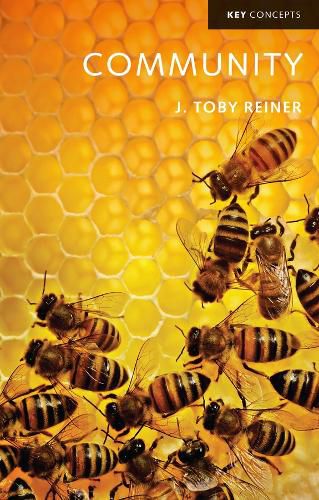Readings Newsletter
Become a Readings Member to make your shopping experience even easier.
Sign in or sign up for free!
You’re not far away from qualifying for FREE standard shipping within Australia
You’ve qualified for FREE standard shipping within Australia
The cart is loading…






People often yearn for a sense of belonging and connection: they long to live in a meaningful community. In the modern age, however, this often seems to be a chimera. Does modernity doom us to be atomised individuals? Does the promise of community imply a loss of autonomy and freedom and entrench inequality and hierarchy?
In this book, J. Toby Reiner examines the debates surrounding community in modern political and social thought. He outlines how liberals, conservatives, socialists, and nationalists have historically conceived of the ties that bind together political communities, and how recent political philosophers such as Rawls, Taylor, Walzer, and Sandel have debated the nature and merits of community in the contemporary world. He goes on to consider how prominent conceptions of community relate to and are in tension with characteristically modern ideals such as equality and freedom. He deftly shows how a meaningful conception of community can be reconciled with the demands of modern liberal societies.
Filled with real-life examples and thought-provoking discussions of the key debates, this book will be essential reading for students of contemporary political theory and philosophy and of sociology.
$9.00 standard shipping within Australia
FREE standard shipping within Australia for orders over $100.00
Express & International shipping calculated at checkout
People often yearn for a sense of belonging and connection: they long to live in a meaningful community. In the modern age, however, this often seems to be a chimera. Does modernity doom us to be atomised individuals? Does the promise of community imply a loss of autonomy and freedom and entrench inequality and hierarchy?
In this book, J. Toby Reiner examines the debates surrounding community in modern political and social thought. He outlines how liberals, conservatives, socialists, and nationalists have historically conceived of the ties that bind together political communities, and how recent political philosophers such as Rawls, Taylor, Walzer, and Sandel have debated the nature and merits of community in the contemporary world. He goes on to consider how prominent conceptions of community relate to and are in tension with characteristically modern ideals such as equality and freedom. He deftly shows how a meaningful conception of community can be reconciled with the demands of modern liberal societies.
Filled with real-life examples and thought-provoking discussions of the key debates, this book will be essential reading for students of contemporary political theory and philosophy and of sociology.